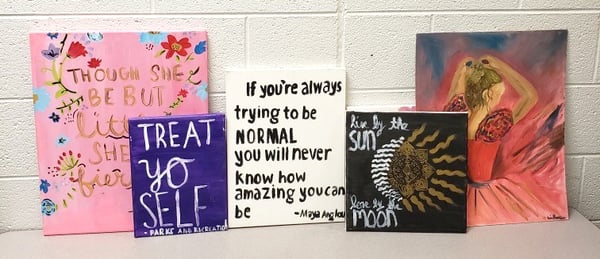
Lea D’Angelo, RDH
I’m a college faculty member in RDH and DAS programs, as well as a Public Health Dental Hygiene Practitioner. I also serve as Public Health Director for the NJDHA. I love global and cultural influences, and sharing my favorite lessons to help sharpen the lens through which you view life and your career.
If you’re a hygienist, I don’t need to tell you this, but I will anyway: over the course of six months, you probably see lots and lots of patients.
Lots.
In fact, if you see an average of 9 patients per day five days a week for six months, you’ll have – in theory – interacted with 1,170 individual patients!
That’s a significant number of people who depend on you for oral health care. What are the odds that some of them come from vastly different backgrounds, beliefs and cultures than you?
Have you ever taken stock of your cultural competence, or thought about how it could affect your level of patient care? Taking it up a notch – even just being mindful of it – goes a long way, especially in the dental profession.
Cultural competence is a broad and ever-evolving topic that can be hard to pin down. Traditionally, dental CE courses on this topic are limited to in-office patient mannerisms and preferences on fluoride.
While these things are certainly important to the success of our practice, reaching a higher level of understanding will help increase patient care, comfort and compliance. If you’ve ever treated a patient with dental anxiety, you’ve probably put this into practice.
Even though you (likely) don’t share this anxiety and can’t personally relate, you probably changed your approach to make sure your patient was as comfortable as possible.
Cultural competence is a similar concept, only you’re enhancing your level of care by promoting positive, effective interactions with patients on a social and cultural level.
Maya Angelou famously said, "I did then what I knew how to do. Now that I know better, I do better."
I try to apply this to the attitude of gratitude that I live every day. As this country blossoms with more immigrants from other countries, and as we identify more and more “labels” in our society such as LGBTQ, it’s easy to sense a divide and segregation between one another.
When we deepen our understanding of these issues, and broaden them even further by familiarizing ourselves with overseas dentistry, the world gains color and light and relatability. We’re all so much more alike than we seem!
My intention is not to change your beliefs or political viewpoint – it’s to refine our professional approach to our personal relationships with our patients. Save the donkeys and elephants for the safari.
Our personal experiences shape the way we see things. As we grow and experience love, loss, poverty, success, sadness, joy and discrimination, we’re refining the lens through which we view the world without even realizing it.
For example, those who have done overseas mission relief trips will typically say, “it changed my life.”
I take that to mean that the experience drastically changed their perspective. Suddenly, first-world problems don’t seem so bad (traffic? Turn on a dental podcast and learn a nugget while you file in line on the turnpike!).
If we all channel that into our everyday practice, we’ll naturally radiate more peace, kindness and relatability.
I’ll leave you with this: as I write this blog (let’s be real: as I TYPE this blog), I’m sitting outside of a Philadelphia school about to do 20 cleanings in three hours on a mobile dental truck for students who can’t afford dental care. I walk inside and I see this on the wall:
Divine intervention? Who knows. Noteworthy coincidence? Absolutely.


Submit a Comment